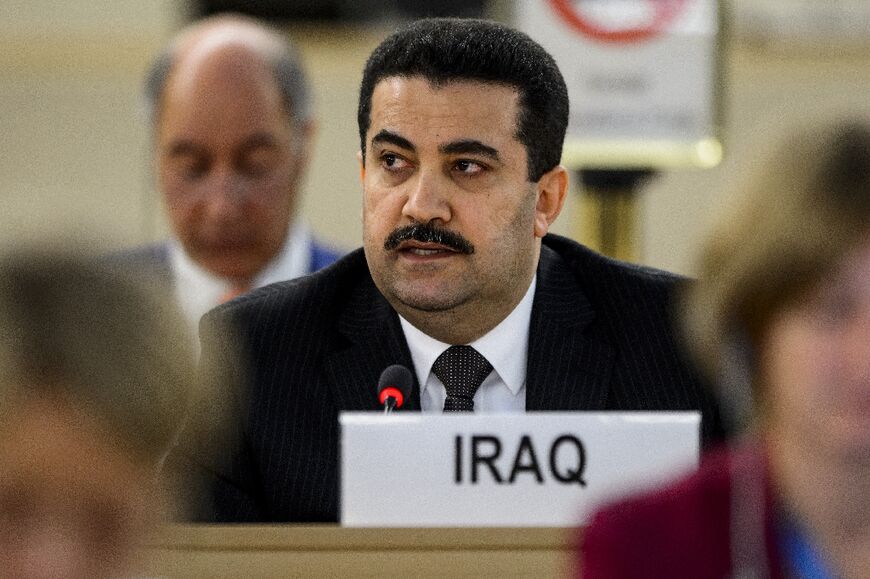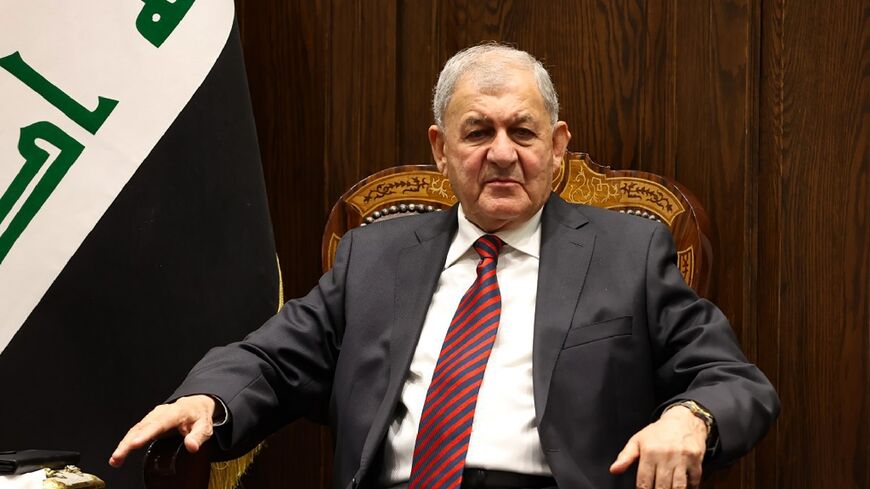Iraq's new PM-designate faces tough task to unite bitter rivals

Iraq's new prime minister-designate Mohammed Shia al-Sudani hails from the Shiite Muslim political class that has been in power for almost two decades.
But, on top of the challenge of forming a government for the crisis-hit country, he must now win the backing of fiercely rival Shiite factions.
More than a year after general elections left Iraq in political paralysis, 52-year-old Sudani was nominated as prime minister by new President Abdul Latif Rashid, to succeed Mustafa al-Kadhemi, in power since 2020.
Sudani, an influential former lawmaker, governor and minister, has the backing of the influential pro-Iran factions of the Coordination Framework.
But he will face a major task ahead to earn the support of their rivals, the millions of diehard supporters of fiery cleric Moqtada Sadr.
Sudani, born in 1970, was just a nine-year-old boy when his father was executed for his opposition to Saddam Hussein.
After the US-led invasion in 2003, Sudani rose to prominence within the Shiite political leadership.
With a degree in agricultural science, he moved through the ranks of the civil service, becoming governor of Maysan, the oil-rich province bordering Iran.
In 2010, he launched his political career in the capital Baghdad, rising within the government of prime minister Nuri al-Maliki, becoming the minister of human rights, then social affairs, and then of industry.
- 'Established political elite' -
Today, it is with the key backing of Maliki and the pro-Tehran Coordination Framework that Sudani must forge a government.
Dressed in dark business suits, and sporting a bushy moustache with neatly close-cropped hair, the father-of-five set out on the campaign trail after the Coordination Framework put forward his name as candidate in July.
As he sought to win over opposition lawmakers, he has presented -- as his predecessors did -- ambitious programmes promising to tackle endemic corruption and rebuild crumbling infrastructure left in ruins by years of war.
When his name was floated in 2019 as a potential candidate for the premiership amid mass anti-government street protests denouncing the political elite, Sudani made little headway.
"He doesn't have a bad history, and there is no huge corruption accusations against him," said Sajad Jiyad, a researcher at the think tank Century International.
"But the fact that he is not known as a significant reformer, the fact that he is part of the established political elite, doesn't give confidence that he could be any different from them."
When he was named in July by the pro-Tehran Coordination Framework, furious Sadr supporters breached the Green Zone and stormed parliament in protest.
For Sadr, Sudani is seen as being "close" to his longtime foe Maliki, said Jiyad.
"For Sadrists, that is a problem," he added. "They believe he (Sudani) is out to defeat the Sadrists politically... that if he gets the chance, he will crush the Sadrists."
- 'Potential popularity' -
Sudani, having cut his teeth in the State of Law party of Maliki, founded his own party in 2021, Al-Furatain, with a total of three lawmakers in parliament.
"He's a statesman," said Bashar al-Saidi, the deputy secretary-general of his party. "He masters ministerial work... and knows how to manage political and administrative affairs."
Among his priorities will be to "pass a budget", "reduce poverty and unemployment", and restore public services including health and electricity, said Saidi.
Also on his to-do list will be organising fresh elections.
Sudani, potentially to head off demands already made by Sadr for early elections, has said that a new vote should be held "within a year and a half". He has called the Sadrists a "great popular and patriotic" movement.
Hamzeh Hadad, a visiting fellow at the European Council on Foreign Relations think tank, spoke of his "potential popularity" with the public.
"He already has good relations with political parties across the spectrum, which is why initial calls against his candidacy were not particularly personal, but the circumstance of being the Coordination Framework's nominee," Hadad said.
Like Kadhemi, his predecessor as premier, Sudani represents "the next generation of Iraqi politicians" who came to power after the toppling to Saddam.
And, as premier with the backing of the Coordination Framework's nominee, he will "be more empowered in office" than his two predecessors, viewed by some as "compromise candidates", Hadad added.







